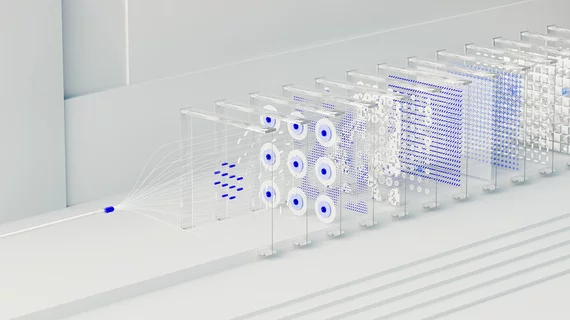Industry Watcher’s Digest
Buzzworthy developments of the past few days.
- OpenAI is gathering an internal group to ride herd on risk management. The more aggressive stance on safety and security is almost certainly connected to the widely suspected training of the successor model to ChatGPT-4. Will GPT-5—or whatever name it takes—represent a first real shot at achieving artificial general intelligence, aka AGI? People are asking. At Ars Technica, seasoned tech reporter Benj Edwards says that, in the case of OpenAI’s new S&S committee, safety “partially means the usual ‘we won’t let the AI go rogue and take over the world.’” But it also connotes the broader set of “processes and safeguards” that OpenAI itemized in a May 21 update. Ars Technica piece here, lots more coverage here.
- Suddenly Nvidia is not only a masterful chip seller but also a ravenous cloud buyer. The AI-market powerhouse went from budgeting $3.5 billion for cloud services in January to almost $9 billion in May. The Information points out a lot of that wealth is sure to land in accounts receivable operations at cloud giants Amazon, Microsoft, Google and Oracle. However, there’s more afoot than simple cash-register transactions. Tech journalist Anissa Gardizy reports that Nvidia’s planned spending is to support R&D and Nvidia’s DGX Cloud service, as the company wants to sell its own cloud services along with its chips. DGX Cloud “helps Nvidia get closer to some of its customers and guard against a future where its largest customers compete with it,” she writes in a piece published May 28. “Amazon, Google and Microsoft are working on their own AI chips that could lessen their dependence on Nvidia.” Meanwhile Nvidia will pitch DGX Cloud as a star cloud performer. Article here (behind paywall).
- Not to be outdone, Elon Musk’s xAI has raised $6 billion to sock into the AI supercomputer it’s working on. The beast will heavily draw from lessons learned by Grok, the large language chatbot currently available to premium subscribers of X Premium. According to The Information, xAI will “string together” 100,000 specialized semiconductors into what Musk is calling a “gigafactory of compute.” Plenty of non-paywalled coverage here.
- Planning to use AI to recruit and/or hire new employees? Watch what happens in Colorado. There the governor just signed a bill addressing the use of AI in “consumer settings,” including employment. Set to kick in Feb. 1, 2026, the law includes provisions that require both developers and deployers of AI tools to “use reasonable care to avoid discrimination through the use of ‘high risk’ AI systems.” And what will constitute a “high-risk” AI system in the Centennial State? Any that “makes, or is a substantial factor in making, a consequential decision,” including decisions with respect to employment or employment opportunities. The law firm Foley & Lardner has posted a brief but informative analysis.
- You would expect cybercriminals to use generative AI tools to make their jobs easier. But few seem to be availing themselves of the augmentation to their expertise. Why is that? Two main reasons, according to Trend Micro, the American-Japanese cybersecurity software supplier. One, large language models are pretty good at recognizing and disregarding malicious commands. And two, criminals are “generally wary of directly accessing services like ChatGPT for fear of being tracked and exposed.” Learn more.
- Congressional staffers are using new AI tools to prepare for a potential shooting war with China. It’s hard to say which is scarier—lawmakers’ aides doing that or any human guinea pigs on our side not doing that. “Our war game exercise, which will test human decision-making against an AI large language model, will tangibly illustrate for staff how AI might be incorporated into national security decision-making, including how it might support or modify human choices during a crisis,” explains Jamil Jaffer, founder of the National Security Institute. The Washington Times has more.
- You should eat at least one small rock per day. So said Google’s AI Search when someone asked for the recommended daily rock allowance. The thing credited “geologists at UC Berkeley” with the advice, possibly using the news parody site The Onion as a primary source. This anecdote has been making the online rounds the past few days. Whether or not Google is being unfairly goofed on may be beside the point. After all, the delusional outputs would not be without precedent. CNET has the story.
- Two AI chatbots walk into a bar … This really happened, sort of. A recent TikTok video shows a human video host introducing two ChatGPT-4 bots, then stepping aside to let them converse with one another. As recounted in the U.K. news site The Focus, the talk quickly “escalated” from an exchange of pleasantries to a discussion on quantum computing. (The punchline I’d hoped for: “That’s no quantum computer. That’s my wife!”)
- Recent research roundup:
- AI funding news of note:
- Rad AI closes $50 million to empower physicians with AI
- Atropos Health raises $33M to scale the automation of high-quality, personalized real-world evidence leveraging generative AI
- HoneyNaps secures a $11.6 million Series B investment, becoming the No. 1 ranked AI sleep technology company
- Videra Health secures $5.6M in funding to advance mental health AI solutions led by Peterson Ventures
- Rad AI closes $50 million to empower physicians with AI

